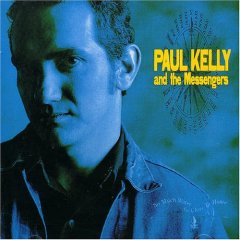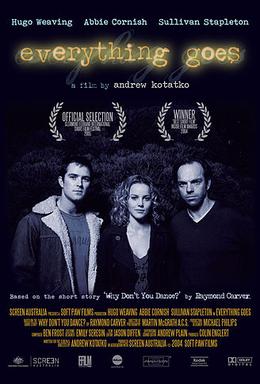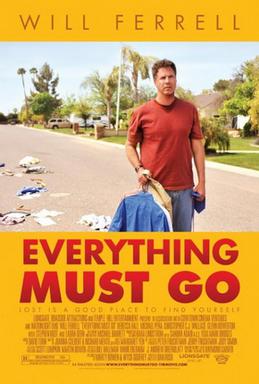Related Research Articles

Raymond Clevie Carver Jr. was an American short story writer and poet. He published his first collection of stories, Will You Please Be Quiet, Please?, in 1976. His breakout collection, What We Talk About When We Talk About Love (1981), received immediate acclaim and established Carver as an important figure in the literary world. It was followed by Cathedral (1983), which Carver considered his watershed and is widely regarded as his masterpiece. The definitive collection of his stories, Where I'm Calling From, was published shortly before his death in 1988. In their 1989 nomination of Carver for the Pulitzer Prize for Fiction, the jury concluded, "The revival in recent years of the short story is attributable in great measure to Carver's mastery of the form."

Esquire is an American men's magazine. Currently published in the United States by Hearst, it also has more than 20 international editions.

So Much Water So Close to Home is an album by Australian rock band Paul Kelly and the Messengers and was originally released in August 1989. The title comes from a short story of the same name by author Raymond Carver. Carver died in August 1988. Kelly co-wrote the score for the 2006 Australian film Jindabyne, which was also based on the same story. The entire album was recorded in the U.S. with producer Scott Litt, best known for his work with R.E.M. It was released on Mushroom/White Records in Australia & New Zealand and A&M Records for the rest of the world. The album peaked at #10 on the ARIA album charts, but none of its singles, "Sweet Guy", "Careless" and "Most Wanted Man in the World" had any Top 40 chart success. All tracks for the album were written by Kelly, who provided vocals, guitar and harmonica and also co-produced with Litt.

Everything Goes is a 2004 short film directed by Andrew Kotatko. It is based on the 1978 short story "Why Don't You Dance?" from Raymond Carver's 1981 collection What We Talk About When We Talk About Love. The film stars Hugo Weaving, Abbie Cornish and Sullivan Stapleton. Everything Goes won the award for Best Short Film at the 2004 Inside Film Awards and was the only Australian film selected for the prestigious Clermont-Ferrand International Short Film Festival in 2005.
Gordon Lish is an American writer. As a literary editor, he championed many American authors, particularly Raymond Carver, Barry Hannah, Amy Hempel, Rick Bass, Tom Spanbauer, and Richard Ford. He is the father of the novelist Atticus Lish.

Will You Please Be Quiet, Please? (1976) was the first major-press short-story collection by American writer Raymond Carver. Described by contemporary critics as a foundational text of minimalist fiction, its stories offered an incisive and influential telling of disenchantment in the mid-century American working class.
Colum McCann is an Irish writer of literary fiction. He was born in Dublin, Ireland, and now lives in New York. He is the co-founder and President of Narrative 4, an international empathy education nonprofit. He is also a Thomas Hunter Writer in Residence at Hunter College, New York. He is known as an international writer who believes in the "democracy of storytelling." Among his numerous honors are the U.S National Book Award, the Dublin Literary Prize, several major European awards, and an Oscar nomination.
"Cathedral" is a short story written by American writer and poet Raymond Carver. It was the first story written after finishing What We Talk About When We Talk About Love. "Cathedral" was first published in the September 1981 issue of The Atlantic Monthly. It was later collected in a short story collection of the same name in 1983.
Catherine Ryan Hyde is an American novelist and short story writer, with more recent forays and notable success in transitioning from traditional publication towards the world of eBook publication. Her novels have enjoyed bestseller status in both the U.S. and U.K., and her short stories have won many awards and honors. Her book Pay It Forward, was later adapted into a film of the same name and her novel Electric God is currently in development.

What We Talk About When We Talk About Love is a 1981 collection of short stories by American writer Raymond Carver, as well as the title of one of the stories in the collection. Considered by many one of American literature's most ambitious short-story collections, it was this collection that turned Raymond Carver into a household name in the publishing industry.
"Chef's House" is a short story written by Raymond Carver.

Michael Hemmingson was a novelist, short story writer, literary critic, cultural anthropologist, qualitative researcher, playwright, music critic and screenwriter. He died in Tijuana, Mexico on 9 January 2014. The reported cause was cardiac arrest.
"Popular Mechanics" is a short story by American writer Raymond Carver. It was originally titled "Mine" and first appeared in Carver's 1977 collection Furious Seasons and Other Stories. It was then republished as "Little Things" in Fiction, as "Mine" again in Playgirl, as "Popular Mechanics" in Carver's 1981 collection What We Talk About When We Talk About Love, and again as "Little Things" in Carver's 1988 collection Where I'm Calling From: New and Selected Stories. There are minor revisions between the version of "Mine" in Furious Seasons and the version published as "Popular Mechanics".

Everything Must Go is a 2010 American comedy-drama film directed by Dan Rush and starring Will Ferrell. The film was based on Raymond Carver's 1978 short story "Why Don't You Dance?" and was released in theaters on May 13, 2011.
The bibliography of Raymond Carver consists of 72 short stories, 306 poems, a novel fragment, a one-act play, a screenplay co-written with Tess Gallagher, and 32 pieces of non-fiction. In 2009, the 17 stories collected in What We Talk About When We Talk About Love were published in their manuscript form, prior to Gordon Lish's extensive editing, under the title Beginners.

Beginners is the title given to the manuscript version of Raymond Carver's 1981 short story collection What We Talk About When We Talk About Love, published with the permission of Carver's widow Tess Gallagher in 2009.

Catfish: The TV Show is an American reality-based documentary television series airing on MTV about the truths and lies of online dating. The series, which premiered on November 12, 2012, is based on the 2010 film Catfish.

What We Talk About When We Talk About Anne Frank is a 2012 short story collection by the American writer Nathan Englander. The book was first published on February 7, 2012, through Knopf and collects eight of Englander's short stories, including the title story "What We Talk About When We Talk About Anne Frank."

Where I'm Calling From: New and Selected Stories is a 1988 collection of short stories compiled by American author Raymond Carver. The collection includes 30 stories selected from four previously published volumes, and seven new stories. They appear in the order of their original publication. The book was published by the Atlantic Monthly Press in May 1988, three months before Carver's death. The seven new stories were later published as a separate book in the United Kingdom, titled Elephant and Other Stories, in August 1988. A paperback edition was published by Vintage Contemporaries in June 1989, under the title Where I'm Calling From: Selected Stories. The book received positive reviews from critics and was a finalist for the Pulitzer Prize for Fiction.
Why Don't You Dance? is a 2002 Canadian short drama film, directed by Michael Downing. Adapted from Raymond Carver's short story "Why Don't You Dance?", the film centres on a young couple shopping at a yard sale, where the proprietor ultimately accepts a dance with the woman on the lawn as payment instead of money.
References
- ↑ Carver, Raymond. Collected Stories. New York: Library of America, 2009. Note on the Texts, p. 999.
- ↑ May, Charles E. (1993). "Reality in the Modern Short Story". Style. 27 (3). Penn State University Press: 369–379. ISSN 0039-4238. JSTOR 42946057 . Retrieved 8 October 2024.
- ↑ Henry Lewes, "Clermont-Ferrand Short Film Festival". Take One , March 2003.
- ↑ "Everything Goes (2004)". The Screen Guide. Screen Australia . Retrieved October 8, 2024.
- ↑ Jonah Weiner (May 6, 2011). "Fledgling Filmmaker Casts Against Type". The New York Times .
- ↑ French, Philip (October 15, 2011). "Everything Must Go – review". The Observer . ISSN 0029-7712 . Retrieved October 8, 2024.